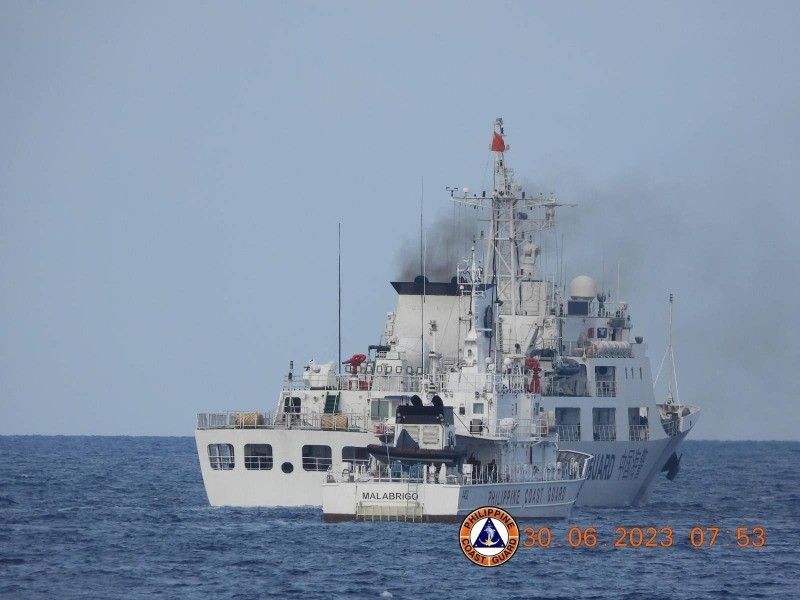The Philippines as a credible defense partner in the Indo-Pacific

A year ago, President Ferdinand Marcos Jr. vowed to direct the country's foreign and security policy with a "friend to all, enemy to none" strategy without giving up a "square inch of territory." He complemented this with various in-person engagements with the Philippines' friends, allies and partners, elevating the country as a credible defense partner in the Indo-Pacific.
Recent engagements with the United States, Australia, Japan, India, European Union and France demonstrate the increasingly mutual strategic interests in the region.
Among the current engagements that the Philippines has is the Marine Aviation Support Activity between the Philippine Marine Corps and the United States Marine Corps, participated by more than 2,000 personnel. Furthermore, the third Philippine-Australia Maritime Dialogue last July 5 was led by Department of Foreign Affairs Assistant Secretary Maria Angela Ponce and Australian Department of Foreign Affairs and Trade First Assistant Secretary for US and Indo-Pacific Strategy Division Peter Sawczak.
Engagements in maritime security are also increasing with the trilateral maritime exercises held last June in Bataan among the Coast Guard of the Philippines, the United States and Japan. Another highlight in foreign relations is the ministerial meeting among the defense ministers of the United States, the Philippines, Australia and Japan at the sidelines of the Shangri-La Dialogue last month, hinting at forming a new quadrilateral security group in the region.
This month, the Philippines and India had the Joint Commission on Bilateral Cooperation in New Delhi led by Philippine Foreign Affairs Secretary Enrique Manalo and Indian Minister of External Affairs Dr. S. Jaishankar. Both sides agreed on the opening of a Defense Attaché office in Manila. With France, the Philippines recently welcomed its Navy ship Lorraine (D657) for a port visit.
Earlier this year, there was an inaugural maritime dialogue between the Philippines and the United Kingdom as part of their “enhanced partnership.” Moreover, the Philippines will be forming a Subcommittee on Maritime Cooperation with the European Union as agreed upon during the Joint Committee Meeting in Brussels last week.
These active engagements with like-minded states demonstrate that the Philippines has become a highly valuable defense partner in the Indo-Pacific. It is gaining a critical role in ensuring the peace and stability of the region as well as maintaining a rules-based international order. With shared values and common concerns, states in the Indo-Pacific have found more reason to come together and expand defense cooperation.
The Philippines must now look into further boosting its external defense capabilities. This is a critical move as the country faces more challenges in its maritime territory, as evidenced by the 97 diplomatic protests filed by the DFA against China's activities in the West Philippine Sea under the Marcos administration. Considering the achievements gained in internal security operations, Marcos expressed his support for recalibrating the Philippine defense strategy to external security capabilities.
This is further reiterated by Defense Secretary Gilberto Teodoro Jr., who asserted a firm stance on the West Philippine Sea, declaring that "our territory is our territory and UNCLOS cannot be changed by the passage of time, nor changes in administration." With this direction, the Philippine Navy deployed its anti-submarine warfare assets BRP Antonio Luna (FF-151) and AgustaWestland AW159 Wildcat helicopter in the West Philippine Sea to assert the country's maritime presence and to act as a critical deterrent against security risks in the territory.
As revealed in the 2022 Pulse Asia survey, the Marcos administration’s active defense posture and alignment with like-minded allies has the support of 9 out of 10 Filipinos who agree that the government should assert its rights on the West Philippine Sea . The survey also showed that the people have high trust with the United States (74%), Australia (48%), Singapore (42%) and Japan (32%).
The significance of maritime security in international and local engagements reflects the historical mark of the Philippines' arbitral victory in the West Philippine Sea in 2016. In its 7th year, the fight for the country's maritime territory continues.
On July 12, 2023, the Stratbase Albert Del Rosario Institute will host the hybrid event entitled "The 7th Year of the Arbitral Victory: Defending the West Philippine Sea, the Indo-Pacific, and the Rules-Based Order." All are invited to express their support for the Philippines and listen to the statements delivered by ambassadors and top experts from the United States, Australia, Japan, India, European Union, France and the United Kingdom.
As security risks continue to threaten the peace and stability of the region, the Philippines must ramp up its resources and capabilities to contribute to maintaining a rules-based international order. In keeping a united front, the Marcos administration is expected to uphold its promise of prioritizing national interests while implementing a more responsive foreign and security policy.
With increased engagements, it is high time that the Philippines asserted its critical role as a credible defense partner in the Indo-Pacific.
Alynna Carlos is a program manager at the think tank Stratbase ADR Institute.
- Latest




























